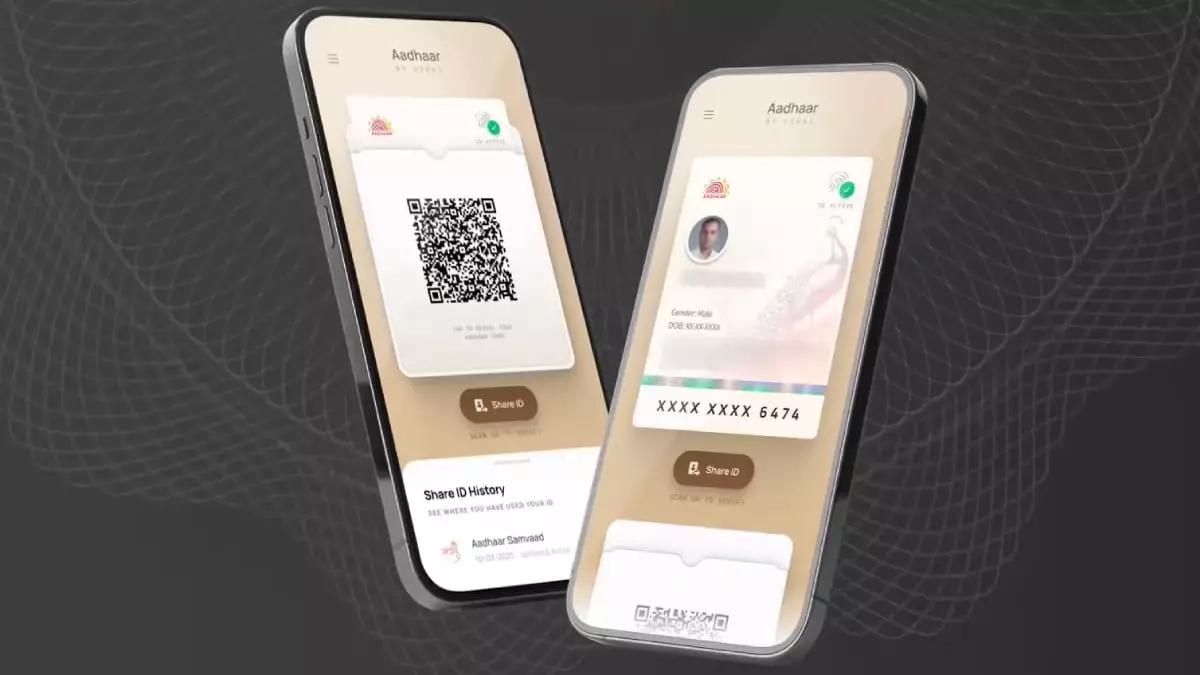In a move that undoubtedly positions India at the forefront of digital identification, the Unique Identification Authority of India (UIDAI) has launched a redesigned Aadhaar app that promises a streamlined verification process. This innovation allows users to authenticate their identity through facial recognition, eliminating the age-old burdens of carrying and presenting physical Aadhaar cards. While the concept is alluring—picturing a future where verifying identity could be as simple as a glance—it raises substantial concerns that must not be overlooked.
The allure of this cutting-edge app shines bright like a digital beacon; it promises speed, efficiency, and convenience. The ability to scan a QR code using one’s smartphone camera, coupled with facial recognition technology, seems to be a leap into a futuristic reality that many tech enthusiasts have been anticipating. Yet, in our excitement to embrace this technology, it is vital to consider the implications that come with it.
Effortless Verification vs. Privacy Invasion
At first glance, the redesigned Aadhaar app appears to be a godsend for the everyday citizen. Users can authenticate their identity without carrying a physical card, a feature that might seem designed for the convenience-driven world we inhabit. However, this convenience carries with it the weight of potential privacy violations. The application relies on biometric authentication—using traits that are intrinsically unique and unchangeable, such as facial features or fingerprints.
A major criticism of biometric authentication is that it inherently compromises individuals’ privacy. Questions loom over how this sensitive data is stored, protected, and, even more critically, who has access to it. In an age where massive data breaches are alarmingly common, the risks are magnified. The UIDAI assures users that their data will be shared only with their consent, yet these promises often falter when commercial interests or governmental oversight come into play.
The Shadow of Security Risks
The assurance of security takes on an ironic tone in the face of such robust skepticism. The UIDAI emphasizes that their new app will protect users against forgery and unauthorized data access. While this is surely an attractive prospect, one cannot help but question the adequacy of these defenses. Biometric data once compromised is irretrievable—a striking difference from a stolen credit card or hacked password which can be changed. This unwavering permanence of biometric information could open doors to identity theft on a scale previously unimaginable.
Moreover, the excitement surrounding the app’s introduction comes with the need for genuine deliberation about implementation. Will this technology be made accessible to all citizens, or will it primarily serve affluent segments of society who own smartphones laden with the latest technology? As with many government initiatives, there exists the peril of creating a two-tiered identity verification system, catering solely to those with access to digital assets.
A Balance of Innovation and Caution
While the Aadhaar app redesign embodies the noble intentions of modernizing identity verification, the intersection of innovation and privacy is fraught with uncertainty. The very nature of relying on immutable biometric details to confirm identity can be a double-edged sword. Proponents will argue that the elimination of paper documents is a leap forward, paving the way for a society that values speed and efficiency. Critics, however, fear that in our pursuit of convenience, we may inadvertently sacrifice our privacy rights.
As technology continues to evolve, the balance between convenience and security will play an increasingly critical role in how such innovations are received. It is essential for citizens, policymakers, and technologists alike to engage in candid dialogues about the ethical implications of adopting such systems. The Aadhaar app may offer a tantalizing glimpse into a streamlined future, but it inevitably requires vigilance and scrutiny to ensure that progress does not come at the cost of personal freedom and security.

